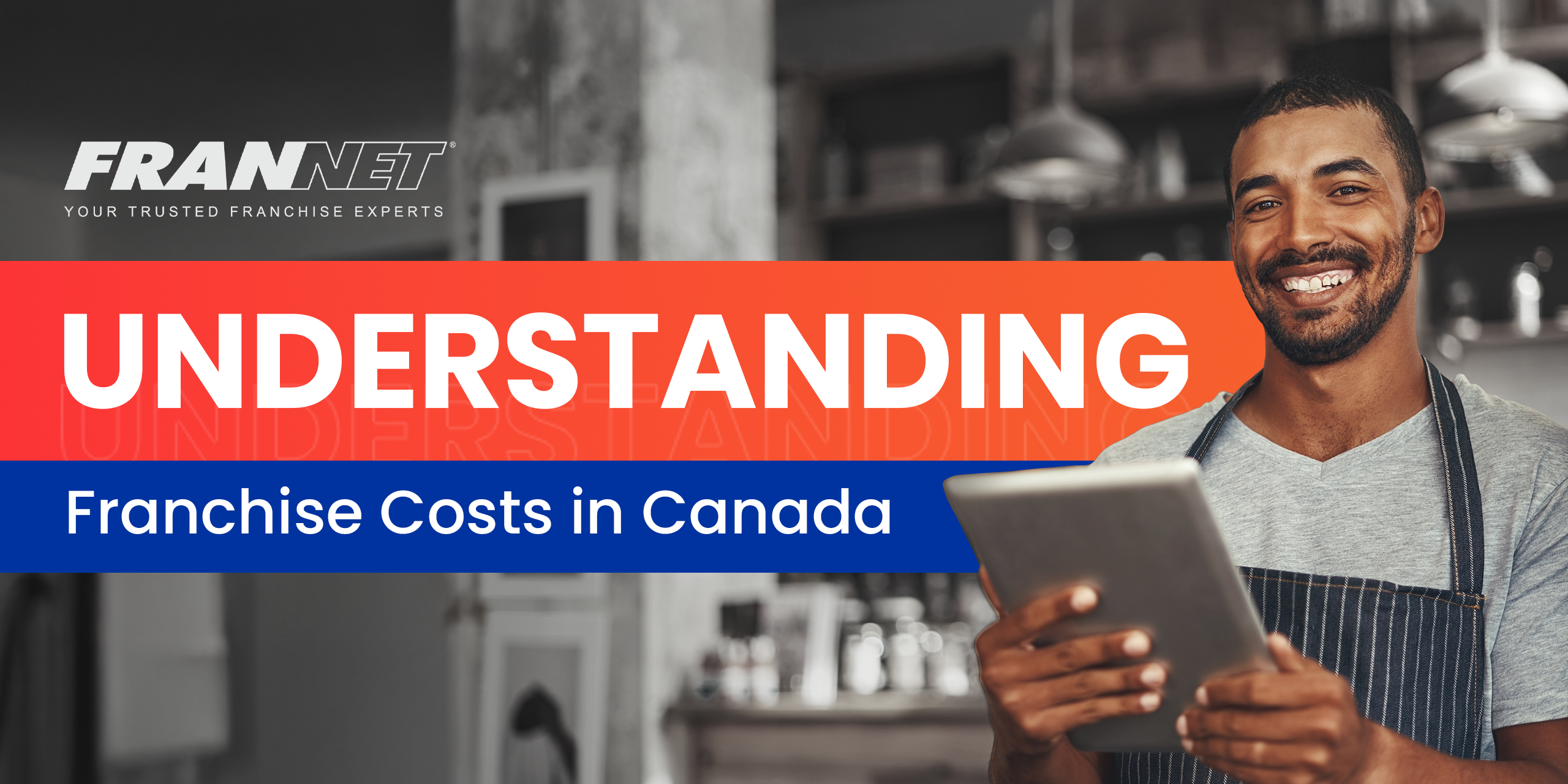
It shouldn’t come as a surprise that there isn’t a simple answer to this question. That’s because the cost of starting a franchise in Canada widely varies depending on the brand, industry, and location.
One of the best ways to know the cost of a franchise is to contact the franchisor and ask for detailed information, including the Franchise Disclosure Document (FDD). The FDD is a legal document that provides specifics about the franchisor, the franchise system, and the terms of the franchise relationship. This includes financial information that will help you understand the costs of buying that particular franchise.
With that being said, there are several factors and average fees to consider when evaluating the cost of a Canadian franchise.
11 Cost Factors Involved in Purchasing a Canadian Franchise
One thing you can be sure of is that buying a franchise isn’t a low-cost investment. However, if you are financially prepared and well-informed, it can be one of the best decisions you make. Here are several factors to consider:
- Franchise Fee – The initial franchise fee is a one-time payment that a franchisee usually makes when signing the Franchise Agreement. It’s essentially a licensing fee that grants the franchisee access to the franchisor’s brand name, business model, support services, and other proprietary elements. This fee can be as low as $10,000 and as high as $50,000. Canadian Franchise Statistics states that the “average initial franchise fee is $25,000” (Franchise101Inc.).
- Royalties – These are ongoing fees that the franchisee pays for the continued use of the brand, which comes with access to franchisor support and resources. Royalty fees are often based on a percentage of the franchisee’s sales.
- Local Costs – There are certain costs that will vary depending on local prices. For example, franchises that require a physical location will require you to negotiate a lease, which is typically one of the largest financial expenses. Along similar lines, where the franchise is located will significantly impact cost as renting in an urban setting will likely be more expensive than a rural location.
- Legal and Regulatory Compliance – Besides the fees you will need to pay the franchise, there are also costs associated with complying with legal requirements in Canada. These include:
- Incorporation fees
- Licenses and permits
- Compliance with tax regulations
- Employment standards
- Health and safety regulations
- Environmental compliance
- Data protection and privacy
- Accessibility standards
- Insurance requirements
- Legal and regulatory consulting (Read our blog – Hiring a Franchise Attorney: What You Need to Know)
- Training – Part of a franchise’s start-up costs include hiring a team of employees, which means you’ll need to pay to train them.
- Marketing and Advertising – This is a common business cost, whether it’s a franchise or not. While the specifics will vary with each franchise, most franchises charge an advertising fee, which generally falls between 1-5% of the franchise’s total sales.
- Equipment and Inventory – This cost largely depends on which franchise industry you decide to join. For example, a home-based service business such as online tutoring will not cost much when it comes to equipment and inventory, but a fast-food restaurant will require a much larger investment.
- Insurance – Franchise agreements will often require franchisees to maintain certain types and levels of insurance coverage. This will vary with each franchisor, specific industry, and local regulations. Examples of required insurance include: general liability insurance, property insurance, worker’s compensation, professional liability insurance, and more.
- Tax Considerations – Even the amount of taxes a business is responsible for will depend on several factors including: tax deductible expenses, employee-related taxes, property ownership, and more.
- Working Capital – Working capital is the difference between a company’s current assets and current liabilities, and it’s essential to the financial health of a franchise. Having enough working capital allows a franchise to operate smoothly, survive financial challenges, and seize opportunities for growth. The amount of working capital you need will depend since the day-to-day operating costs will vary with each franchise.
- Professional Services – Engaging professional services is an important aspect of franchise ownership as they ensure compliance, legal protection, financial accuracy, and strategic business development. Examples of services you might need to outsource include: legal protection, accounting and taxes, business consultation, human resources, and more. Of course, these costs will vary with each industry, location, and the specific skills of a franchise owner.
Researching How to Buy a Franchise in Canada?
If you’re interested in buying a franchise and becoming your own boss, FranNet is here to help. If you’re unsure about the costs of purchasing a franchise, our franchise consultants will evaluate your goals and abilities and match you with the right franchise opportunity. Better yet, this comes at no cost to you. Schedule your free consultation today!
Further Reading:
